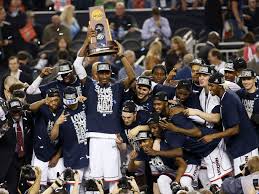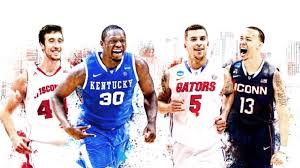Academic Time Management for Student Athlete’s

Jordan Lessane 21, of Mt. Vernon commutes to school just like every other college student and faces his full time academic commitment.
Before heading to his 8:30 class every morning, he has to report to the gym for his 6 a.m. practice.
After he is let out of class at 11:40 a.m., he reports to the gym once again at noon for round two of practice, which lasts about two hours. When the college athlete is let out, he sometimes has another class to attend. If not, he has to complete “power hours” once a day in the library. Power hours are equivalent to having a study hall. Even sometimes after power hours, Jordan still has homework he has to complete at home.
Why is it that some athletes can handle the pressure of being a student athlete? Why do some athletes crumble under the pressure? What can you do to change your ways? These are just a few questions that some athletes ask, the answers may surprise you.
Being a college student is no easy task. It is twice as hard being a student athlete. When you are a student athlete you are held at a higher standard. There are expectations you must meet in the classroom in order to be able to play your sport. Athletes must have at least a 2.0 gpa to be able to play according to the NCAA regulations. Mercy College is aiming for a 3.0 gpa for their athletes.
Coach Joe Deluri, assistant coach of the Men’s basketball team, says “time management is the most important skill set, not only for student athletes but throughout ones personal and professional life.” Some athletes like Jordan Lessane budgets his time well. Other athletes never learned how to manage their time. There are also those athletes that are just too lazy to attempt to go to class and focus on their studies.
Some other reasons athletes fail to meet their academic expectations are that student-athletes choose the wrong school socially for them. Some schools are too big, other are too small. Some schools are too far away from home, others are too close. Some schools have a diverse student body; others have students that are all the same. Some schools are in big cities, others are in the middle of nowhere. Some schools don’t have enough activities outside of school to do. The location of a school can be a problem for some athletes. It can be a huge distraction.
Athletes should make sure they are well rested so they can function throughout the day. They should get about seven to eight hours of sleep every night. You would be surprise with how much more functional a student would be in school with enough rest and a nutritional breakfast. Also make sure that you make time for your studies. No one expects the student athlete to study for 4 hours a day, but be sure to make some time to study and finish homework. Budgeting out your time and making a schedule for when it is time to work and when it is time to enjoy your social life can be great help in a student athlete’s life.

Trifton Rose is a Yonkers native who is a senior at Mercy College and majors in
broadcast Journalism. He is a member of the men's basketball team. Trifton ...







